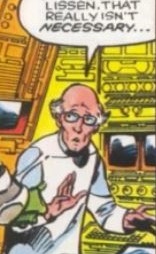Friday, October 28, 2022
Divine freedom and necessity
Tuesday, October 25, 2022
It’s an overdue open thread
We’re long overdue for an open thread, so here it is. Now you can post that otherwise off-topic comment that I deleted three days, three weeks, or three months ago. Feel free to talk about whatever you like, from light cones to Indiana Jones, Duns Scotus to the current POTUS, Urdu to Wall of Voodoo. Just keep it civil and classy.
Thursday, October 20, 2022
Divine freedom and heresy
If it is a necessary truth that all
will be saved, something makes it so.
The only way it would be impossible for anyone to go to hell is,
1. that God could not do otherwise
than cause human beings to love him or
2. that human beings could not do
otherwise than love God.
3. There is no third option.
Both of these options, however, entail heresy. This is why universalism has been seen as heretical by mainstream Christianity for millennia, for good reason.
Friday, October 14, 2022
The latest on All One in Christ
Feser’s short book contains several
excellent chapters that define, dissect, and ultimately demolish CRT.
Not for nothing does writer Ryan T. Anderson call it “the best book I’ve
read on the topic.”…
I presume none of Feser’s CRT
sparring partners will actually read this book – they have proved themselves so
impervious to even the most charitable and tempered criticism that they seem a
lost cause…
Perhaps, then, the best target audience for Feser’s pocket-size refutation of CRT are those who thought embracing it would place them in the “good guys” camp, but have begun to realize they were suckered them into a spiral of endless self-abasement. There is no forgiveness or reconciliation in the anti-racist paradigm. That would mean equity had been realized – an end-state anti-racists will never allow, because it would eliminate their (very lucrative) raison d’être.
Thursday, October 6, 2022
Can Pope Honorius be defended?
Tuesday, October 4, 2022
The error and condemnation of Pope Honorius
The Church does not hold, however, that popes always teach infallibly when not speaking ex cathedra. The First Vatican Council deliberately stopped short of making that claim. One reason for this is that there have been a few popes (though only a few) who erred when not exercising their extraordinary magisterium. The most spectacular case is that of Pope Honorius I (pope from 625-638 A.D.), who taught a Christological error that facilitated the spread of the Monothelite heresy, and was formally condemned for it by several Church councils and later popes.






